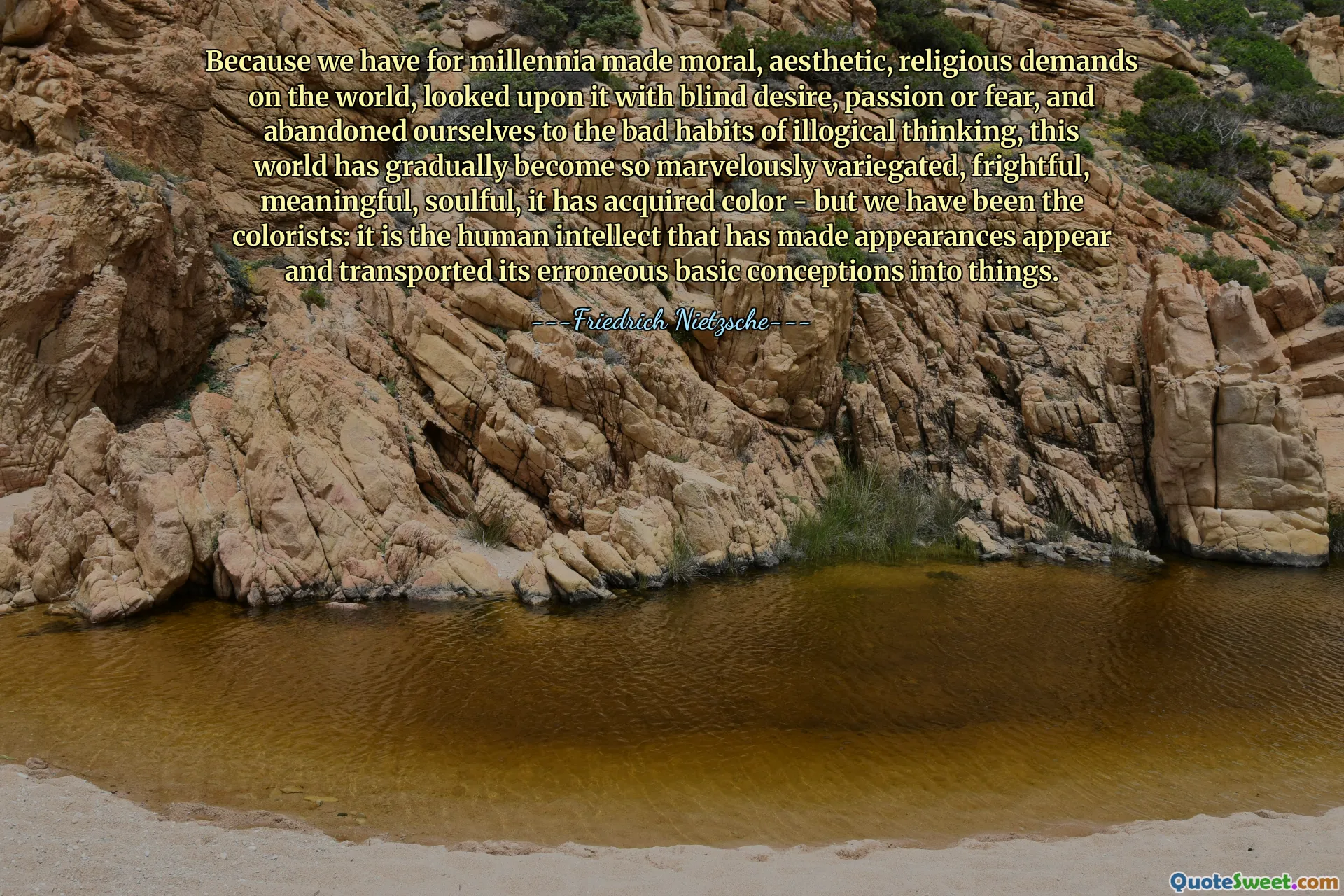
Because we have for millennia made moral, aesthetic, religious demands on the world, looked upon it with blind desire, passion or fear, and abandoned ourselves to the bad habits of illogical thinking, this world has gradually become so marvelously variegated, frightful, meaningful, soulful, it has acquired color - but we have been the colorists: it is the human intellect that has made appearances appear and transported its erroneous basic conceptions into things.
This quote by Friedrich Nietzsche presents a profound reflection on the human role in shaping our perception of reality. It suggests that much of what we consider to be inherent qualities of the world are actually constructs borne out of human imagination, desire, and intellect. Nietzsche emphasizes that over millennia, humans have projected moral, aesthetic, and religious standards onto the natural world, driven by desire, passion, and fear, often at the expense of logical clarity. As a result, the world has become richly complex, colorful, and meaningful—not because of objective reality but because of our interpretations and cognitive biases. The ability of the human mind to assign significance, to color our environment with our own ideas, is both a source of beauty and chaos. This coloring process creates a layered reality where appearances are shaped by our perceptions rather than by objective truths. Nietzsche's insight probes the nature of human cognition—our tendency to imbue phenomena with meaning that may be illusory or misguided, yet shapes our entire experience of existence. Recognizing that our understanding is a product of our mental 'coloring' encourages a reevaluation of how much weight we give to our constructed perceptions. It also challenges us to strive for greater awareness of the influences shaping our worldview, acknowledging our role as creators of meaning rather than mere passive observers of an unaltered universe.











